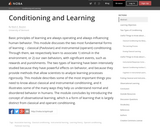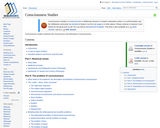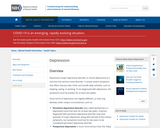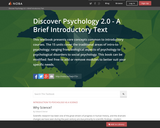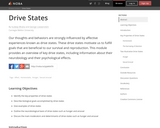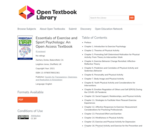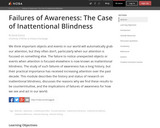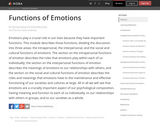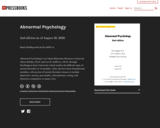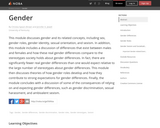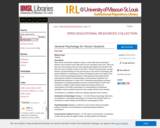This text represents the collaboration of more than 70 authors from multiple countries. Essentials of Exercise and Sport Psychology: An Open Access Textbook brings this diverse set of experts together to provide a free, open, accessible textbook for students studying exercise and sport psychology. Primarily directed at undergraduate students, this well-referenced book is also appropriate for graduate students.
The topics covered are broad, ranging from an Introduction to Exercise Psychology (Chapter 1), to an Introduction to Sport Psychology (Chapter 19), to Working in Sport, Exercise, and Performance Psychology (Chapter 33). Importantly, students should recognize that each author brings their individual perspectives, experiences, and expertise to this book. Therefore, some chapters may share overlapping content, but the content is discussed in unique ways. For example, Chapters 2, 3, 4, and 5 focus on physical activity and exercise behavior. While content in these chapters is related, it is not redundant. To fully understand the complex world of exercise and sport psychology, students are encouraged to engage with diverse perspectives from many authors.
Chapters also contain learning exercises to prompt students and instructors to engage with the material on a deeper level. For effective review, students and instructors are encouraged to complete these learning exercises and discuss responses together.
Table of Contents
Chapter 1. Introduction to Exercise Psychology
Chapter 2. Theories of Physical Activity
Chapter 3. Promoting Self-Determined Motivation for Physical Activity: From Theory to Intervention Work
Chapter 4. Exercise Behavior Change Revisited: Affective-Reflective Theory
Chapter 5. Predictors and Correlates of Physical Activity and Sedentary Behavior
Chapter 6. Personality and Physical Activity
Chapter 7. Body Image and Physical Activity
Chapter 8. Youth Physical Activity and Considerations for Interventions
Chapter 9. Emotion Regulation of Others and Self (EROS) During the COVID-19 Pandemic
Chapter 10. Social Support, Relationships, and Physical Activity
Chapter 11. Strategies to Facilitate More Pleasant Exercise Experiences
Chapter 12. Affective Responses to Exercise: Measurement Considerations for Practicing Professionals
Chapter 13. Perceived Effort and Exertion
Chapter 14. Mindfulness in Physical Activity
Chapter 15. Exercise and Physical Activity for Depression
Chapter 16. Physical Activity and Exercise for the Prevention and Management of Anxiety
Chapter 17. Physical Activity and Severe Mental Illness
Chapter 18. Exercise and Chronic Fatigue
Chapter 19. Taking the Field: An Introduction to the Field of Sport Psychology
Chapter 20. Get Your Head in the Game: Examining the Use of Psychological Skills in Sport
Chapter 21. Motivation in Coaching: Promoting Adaptive Psychological Outcomes
Chapter 22. Self-Control in Sports
Chapter 23. Music in Sport: From Conceptual Underpinnings to Applications
Chapter 24. Values-Based Coaching: The Role Coaches in Moral Development
Chapter 25. Leadership Development in Sports Teams
Chapter 26. Group Dynamics in Sport
Chapter 27. Self, Relational, and Collective Efficacy in Athletes
Chapter 28. Diagnosing Problems, Prescribing Solutions, and Advancing Athlete Burnout Research
Chapter 29. Psychological Stress and Performance
Chapter 30. Organizational Stress in Competitive Sport
Chapter 31. Rehabilitation from Sport Injury: A Social Support Perspective
Chapter 32. Promoting Adherence to Rehabilitation through Supporting Patient Well-Being: A Self-Determination Perspective
Chapter 33. Working in Sport, Exercise, and Performance Psychology
